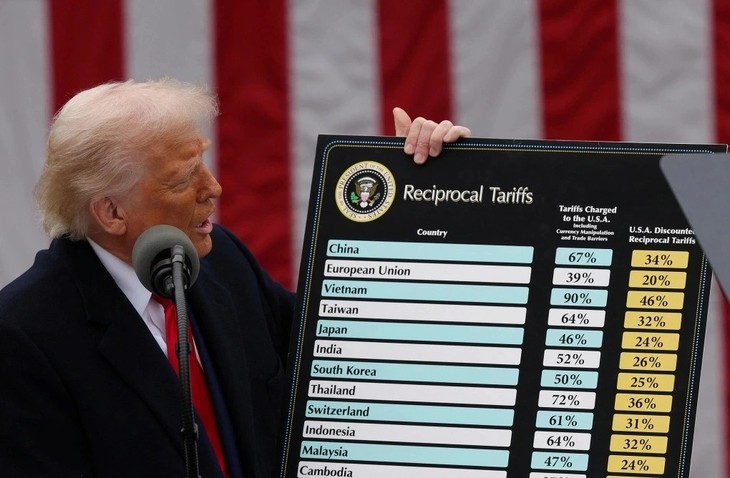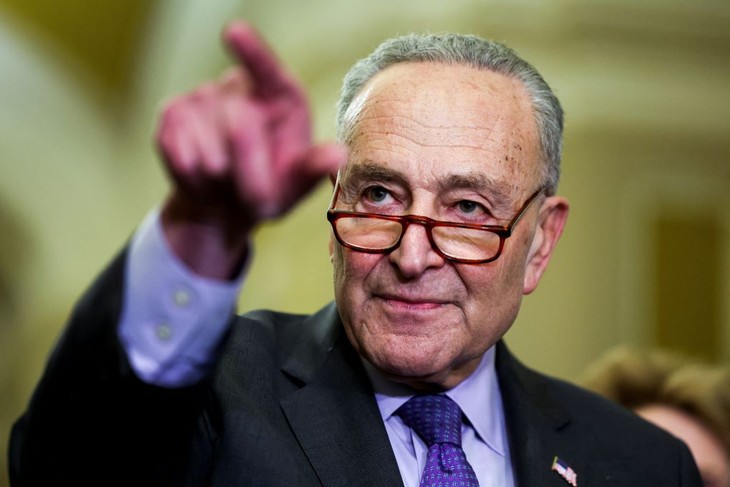(VOVWORLD) -US President Donald Trump on Wednesday (local time) signed an executive order to impose reciprocal tariffs on 60 countries, ranging from 20% to 49%.
 The US President holds a chart showing the reciprocal import tariffs applied to different countries. Photo: Reuters The US President holds a chart showing the reciprocal import tariffs applied to different countries. Photo: Reuters |
In front of the press at the White House, President Trump holds up a chart of tariffs on the United States' trading partners, which stated the rates to be applied in response to what his government believes these countries have imposed "unfairly" on US goods, although Trump did not specify on what basis these figures were calculated.
President Trump will impose an individualized reciprocal higher tariff on the countries with which the United States has the largest trade deficits. All other countries will continue to be subject to the original 10% tariff baseline. The 10% rate will take effect from April 5 while the reciprocal tariffs will take effect from April 9.
The tariffs will be 46% on Vietnamese imports, 20% on EU imports, 34% on Chinese imports; 24% on Japanese imports; 26% on Brazilian imports; 25% on South Korean imports; 36% on Thai imports. Other partners like Taiwan (China), Switzerland, Indonesia, and Malaysia are subject to 24 to 31% tariff rates.
Trump said "jobs and factories will come roaring back" and that the reciprocal tariffs will usher in a "golden age" for the country. But the decision sparked controversy within the United States.
 US Senate Democratic Minority Leader Chuck Schumer. Photo: Reuters US Senate Democratic Minority Leader Chuck Schumer. Photo: Reuters |
Senate Democratic Minority Leader Chuck Schumer argued: “It is estimated that the average American family will pay more than 5,000 dollars out of their pocket to pay for these tariffs. These tariffs will cost them 5,000 dollars as the prices of everything goes up, whether it’s groceries or cars or wood, you name it, across the border. Why would Trump do this?”
Major economic partners of the US vowed to respond with countermeasures. The EU announced it would take retaliatory measures on Thursday. Australia, Sweden, Norway, and Switzerland criticized the new tariffs and said they would consider appropriate responses.